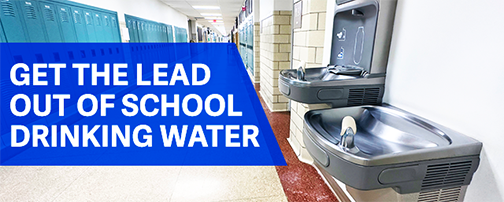PERRYVILLE – Perry County School District No. 32 has notified parents that it is launching an effort to deal with possible lead contamination in the district’s drinking water.
Superintendent Fara Jones notified parents last week, “I am writing today to inform you of the district’s plan to address possible lead contamination in drinking water.”

The superintendent included documents for parents to review that indicate how the district plans to comply with RSMo 160.077; Get the Lead Out of School Drinking Water Act 2022-2023.
This law compels all schools to test drinking water sources to ensure the water is safe for consumption, which is deemed to be drinking water that contains less than 5 parts per million of lead.
“This law is a good thing,” the superintendent continued, “because there is no safe level of lead for consumption and lead exposure carries serious health consequences. Children who have been exposed to lead may show no outward signs at first but may later develop damage to the brain and nervous system that leads to learning and behavior problems, slowed growth and development, and may affect hearing and speech.”
Parents can learn more about the dangers of lead exposure in the attached documents from National Lead Poisoning Prevention Week 2023 or by visiting the CDC’s Health Effects of Lead Exposure site.
“The great news is that lead exposure can be prevented, which is why we are having each source of drinking and cooking water in our nine school facilities independently tested by licensed professionals. We will share those results with you, as well as any steps that must be taken to protect the health and wellbeing of our students and staff.”
Dr. Jones said signage will also be installed at all water sources that should not be used for drinking or cooking including sinks in science labs, and certain outdoor spigots.”
Depending on the results of the testing, the district may incur significant expenses during remediation. It has applied for funding from the state, which has allocated a one-time amount of $27 million to distribute to public schools to support lead reduction in drinking water.”
“We will provide you with information about the cost of remediation and the amount of any funding we receive from the state when that information becomes available. While this process will require a great deal of effort and time, and has the potential to be very costly, there is no better investment than in the health and safety of the children of our community,” Dr. Jones concluded.
